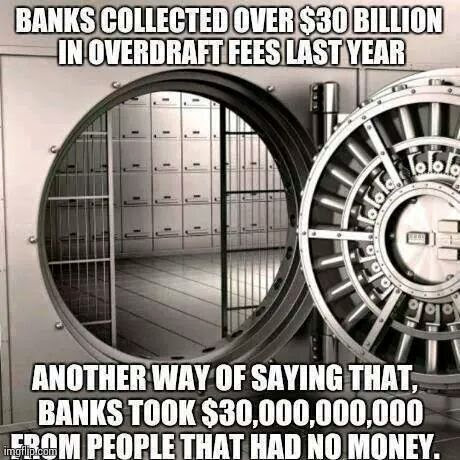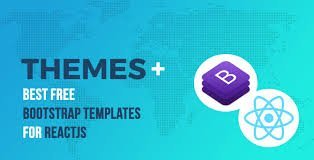Opening a bank account with no required deposit may sound challenging, but it’s not. It turns out that you can open a bank account online even if you don’t have any money. It may appear contradictory because banks are used to store money, yet this choice opens up a plethora of possibilities.
Whatever your reason for opening an account without making a deposit, we’ll break it down so you understand your alternatives.
Traditional Account Opening vs. Modern Options
What are the requirements for opening a bank account?
Banks have traditionally needed a minimum deposit since that is how they operate. Banks profit through lending, but they do not lend their own money. Instead, they lend money to their account holders.
Banks then earn interest on their loans, allowing them to pay their consumers a small amount of interest. These profits enable banks to cover overhead expenditures for their physical facilities, among other things.

Without a deposit, even if you intend to make one soon, your firm provides little immediate benefit to traditional banks. Fortunately, the modern period has paved the way for online banks, which, due to their virtual nature, have significantly reduced overhead. This enables online-only banks to be far more accommodating to their customers. See more online banking benefits and drawbacks.
How to Open a No-Deposit Bank Account
Online-only banks offer many of the same services as regular banks, as well as a few extras that you won’t find at a traditional bank.
It takes some investigation to identify the best location for opening a bank account. First, examine which aspects of your bank are important to you.
The following factors differ between institutions:
• Electronic transfers
• Banking on the go
• ATM accessibility
• Bill payment online
• Electronic funds transfer
• Overdraft charges
• Monthly upkeep expenses
• requirement for a minimum balance
• Savings are made automatically.
• Hours of customer service
• Rates of interest
• Total number of accounts
Opening a bank account online with no money is as simple as applying once you’ve established which features are crucial to you. You will select whether you want a checking account, a savings account, or a combination of the two. A checking account will allow you to freely spend your money; however, a savings account may be preferable if you do not intend to access the funds frequently. Then you’ll select a bank.
Personal details such as your home address, date of birth, social security number or taxpayer ID, driver’s license or government-issued ID, phone number, and email address are required to apply. If you’ve moved within the last two years, you’ll also need your old address. This data is used to verify your identity.
Banks that do not require a deposit to open an account
Banks that Don’t Require an Opening Deposit
If you want to start an online account, we’ve compiled a list of banks with no deposit requirements that might be a suitable fit for you.
Allied Bank
Ally Bank offers a high-interest choice with innovative internet features, including mobile check deposits, voice money transfers, and automated savings plans. It also has no minimum balance requirements and no maintenance fees.
The Axos Bank
Axos is a completely online bank that offers early mobile deposits and no overdraft fees. The online app is also meant to be readily integrated with third-party money apps.
One Capital
You get 24/7 customer care and access to over 70,000 fee-free ATMs nationwide with the Capital One 360 checking account. And, while you can bank entirely online, Capital One still offers physical locations.
Discover
Unlike many other online banking solutions, Discover provides a wide range of banking products in addition to checking and savings accounts. Money market accounts and certificates of deposit are also available. Discover also claims to have no costs, including no overdraft fees. It’s worth noting that not all vendors accept Discover cards.
State Farm Insurance
State Farm isn’t just for insurance; they’ve partnered with US Bank to offer no-fee online bank accounts. While there are no fees for the first year, State Farm will levy monthly fees if certain conditions are not met. They also provide various packages with varied levels of service and costs.
Varo
Varo is another online-only bank offering early direct deposit and cash returns. Varo also has very minimal fees, none of which are associated with overdrafts.
SoFi Money
SoFi Money’s cash management account does not require a minimum deposit to open.
Other banks with no deposit required:
- Marcus by Goldman Sachs: This online bank offers a high-yield savings account with no minimum deposit required.
- Fidelity Cash Management Account: This account functions like a checking account and has no minimum opening deposit requirement.
- Schwab Bank High Yield Investor Checking Account: This account doesn’t require a minimum opening deposit.
- TD Bank Simple Checking: There’s no minimum deposit required to open this account.
- Alliant Credit Union High-Rate Checking: No minimum deposit is needed to open this account.
- USAA Classic Checking: No minimum deposit is required to open this account.
- BBVA Free Checking: This account can be opened with no minimum deposit.
- Citizens Bank One Deposit Checking Account: This account allows you to open with any amount.
- First Internet Bank: Their Free Checking account can be opened with no minimum deposit.
- US Bank Easy Checking: No minimum deposit is required to open this account.
- PNC Bank Virtual Wallet: This account has no minimum opening deposit requirement.
- Navy Federal Credit Union Free Active Duty Checking: This account doesn’t require a minimum deposit to open.
- NBKC Personal Account: No minimum deposit is required to open this account.
Minimum Balance Requirements, If Applicable
While none of the banks mentioned above require you to start with a balance, many of them expect you to deposit within 30 days. Otherwise, you risk having your account closed. It may be prudent to wait if you do not expect to have income to deposit within a month of opening your account.
Before you apply, read the fine print to see if the bank will have minimum balance requirements. If you are unsure, you can contact the institution directly.
When you’re ready to deposit funds into your new account, you have three options. The first option is to set up mobile deposits with your organization. You’ll almost certainly need a voided check to do so. You can also deposit a check by taking a snapshot of it or a cash deposit by visiting an in-network ATM. Of course, if you already have an account, you can link the two and transfer funds. Keep in mind that it may take a few business days to link accounts and another few days to execute a transfer.
Yes, it is possible to open a bank account with no deposit.
Whatever your reason, there are many options for online banking that do not require you to make a deposit when you open an account. No matter where you go, online banking is a terrific way to bank.
Finally, you can go to apps to see how you can save for your financial objectives and open a checking account with any spending options, which may provide you with the best features and typical benefits of an online bank.
How can I open a checking account online instantly no deposit required? Step by Step
Opening a checking account online without a deposit requirement can generally be done following these steps:
- Research Your Options: As mentioned in previous responses, many banks and credit unions offer checking accounts with no minimum opening deposit. These include Ally Bank, Chime, Capital One 360, and Varo Money. Research each option and understand the account’s features, fees, and other terms.
- Choose Your Bank and Account: Once you’ve researched, choose the bank and specific account type that best suits your needs.
- Visit the Bank’s Website: Go to the bank’s official website and look for an option like “Open an Account.” This is typically found in the main menu or at the top of the webpage.
- Apply Online: Fill out the online application form. This usually involves providing personal information such as your full name, address, social security number, and a valid form of identification like a driver’s license or passport number. You might also need to provide your employment information and income.
- Accept the Terms and Conditions: You must agree to the bank’s terms and conditions to open your account. Make sure you read these carefully so you understand your obligations and the bank’s policies.
- Submit Your Application: After you’ve filled in all the required information and accepted the terms and conditions, you can submit your application.
- Account Verification: The bank usually verifies your identity and reviews your application. Some banks are able to approve applications instantly, while others may take a few business days.
- Account Setup: Once approved, you can set up online banking, including setting your username and password.
Remember, even though the bank might not require a minimum deposit to open the account, they may have other fees or requirements for maintaining the account, such as minimum balance or direct deposit requirements to avoid monthly fees. Always thoroughly research the account’s terms before opening it.
Do I Need Money to Open a Bank Account?
No. To outpace traditional major banks, American digital banks present banking accounts with zero fees that don’t necessitate an initial or minimum deposit.
Conventional banks frequently stipulate that customers retain a minimum balance, ranging between $25 to $100. This is because banks accumulate clients’ funds to extend loans and mortgages to borrowers. To guarantee they possess ample liquidity to offer loans, traditional banks enforce restrictions on how much money customers can withdraw from their accounts.
In contrast, American digital banks do not demand their customers to keep a minimum deposit in their accounts, as their operational model doesn’t depend on accruing interest on loans. Notably, digital banks don’t run any physical branches, allowing them to save substantial capital.
Furthermore, digital banks often profit by merely transferring interchange fees to merchants (these fees are charged on transactions conducted using payment platforms such as Visa and Mastercard), which incurs no additional cost for the customers. They also generate revenue through ATM charges or premium membership subscriptions.
This explains why digital banks in the US permit customers to open a bank account online without any initial funds and levy no concealed charges. In contrast, many traditional banks require a minimum deposit.










Comments 2
Comments are closed.